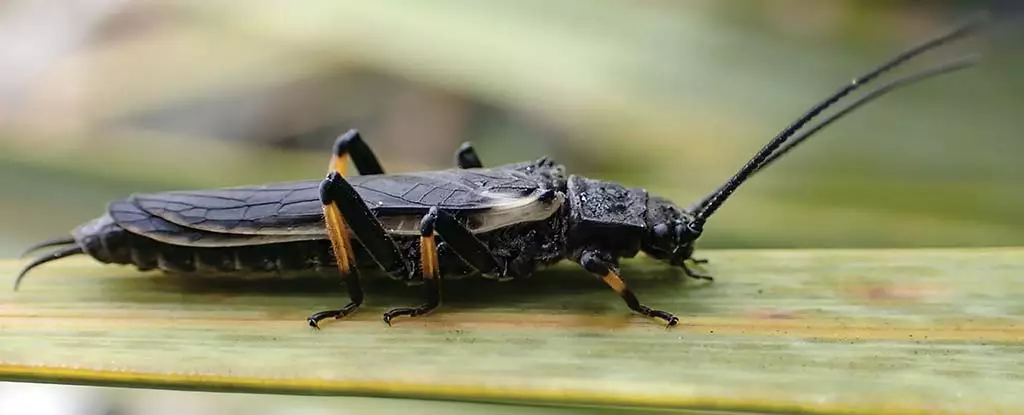New Zealand is home to a diverse range of unique wildlife, among which the long-tailed stonefly, scientifically known as Zelandoperla, stands out due to its fascinating evolutionary adaptations. Historically, this insect employed a clever survival strategy: it mimicked the appearance of a toxic counterpart, Austroperla, which deterred predators through its ability to produce cyanide. However, human-induced changes to its habitat have catalyzed a significant evolutionary shift in Zelandoperla. Researchers from the University of Otago have uncovered compelling evidence of how deforestation has instigated a color change in these insects, resulting in the abandonment of their mimicry strategy. This case illustrates not only the direct impact of environmental changes on species but also the capability of certain populations to rapidly adapt to new ecological realities.
The phenomenon of deforestation has been particularly pronounced in Southern New Zealand since the early 1800s, coinciding with the arrival of European settlers. As forests were cleared and ecosystems disrupted, Austroperla, primarily a forest-dweller dependent on leaf and woody debris, became increasingly scarce in deforested areas. This scarcity eliminated the need for Zelandoperla to maintain its mimicry of the toxic stonefly, as the very model it relied upon for survival was absent. Without Austroperla, Zelandoperla’s mimicry became redundant, prompting a notable evolutionary shift: a reduction in the population’s ebony coloration.
A recent study conducted by researchers employed a variety of scientific methods, including field observations, predation experiments, and gene mapping, to understand how these environmental changes influenced color adaptations in Zelandoperla. The results were striking; they indicated a comprehensive adaptive strategy that reflected the insect’s response to its changing habitat. In experiments using models of both colored variants of Zelandoperla, it was shown that bird predators preferred to attack lighter-colored stoneflies in forested habitats but instead shifted their predation patterns in deforested areas. In these conditions, light-colored stoneflies faced fewer threats, suggesting resilience in this native insect despite human-induced habitat alteration.
The findings of this study hint at broader ecological implications regarding adaptation in wildlife as a result of changing environments. The long-tailed stonefly exemplifies a species capable of rapid evolutionary changes driven by deforestation, and its adaptive responses have been observable across various regions. Zoologist Graham McCulloch has noted that independent populations of Zelandoperla have exhibited similar changes in response to deforestation, reinforcing the idea that evolution can occur in predictable patterns under environmental pressures. This resilience has been key in highlighting how species can adjust to their ecological niches, even when faced with the rapid disruptions wrought by human activity.
This case study of the long-tailed stonefly serves as a poignant reminder of the complexities within ecological systems and the potential for nature to adapt even in the face of severe human impact. The shift in coloration from mimicry to a more advantageous survival trait underscores a remarkable flexibility present in evolutionary processes. While the alterations induced by human activity have led to significant challenges for many species, Zelandoperla demonstrates a pathway of resilience and adaptability worth celebrating. Understanding these adaptations not only enhances our knowledge of evolutionary biology but also emphasizes the pressing need to evaluate our impact on natural ecosystems and strive for conservation efforts that allow native wildlife to thrive amidst ongoing environmental changes.


Leave a Reply